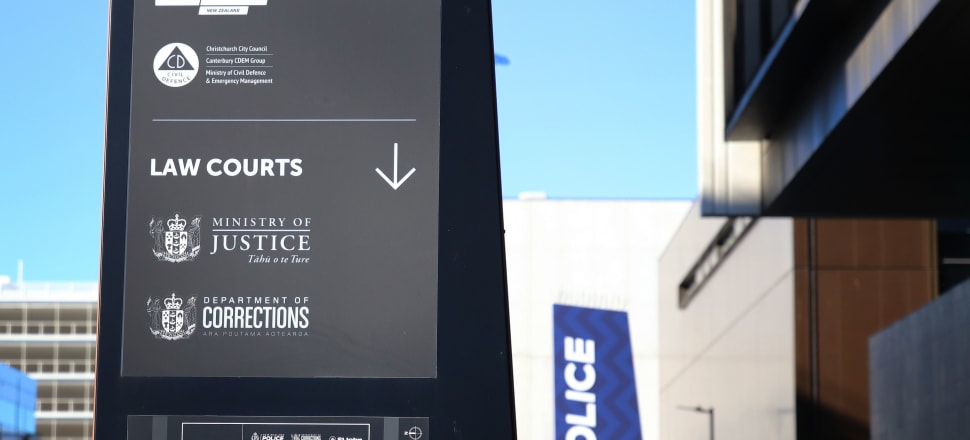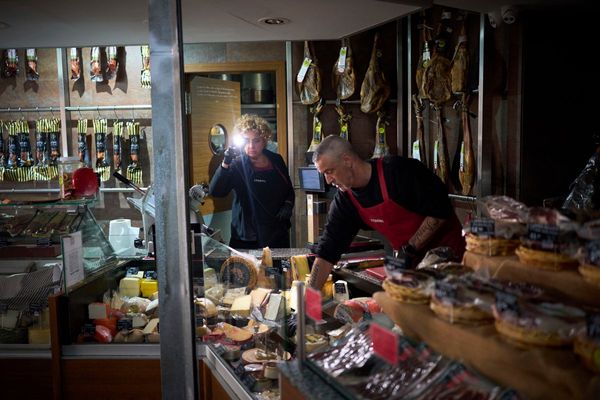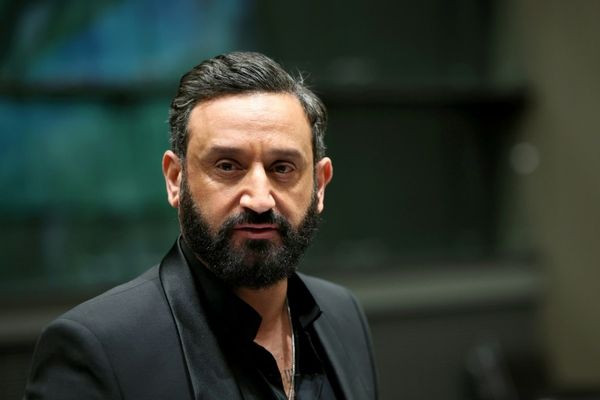
The validity of a report commissioned by the Ministry of Justice to find out why more people are entering later guilty pleas and electing jury trials has been called into question
There is outcry over a report commissioned by the Ministry of Justice that suggests lawyers delay court proceedings to benefit financially.
Lawyers say some of the comments within the report are offensive and the entire document should be treated with extreme caution.
READ MORE:
* Five years on remand: Justice system breaks its own record
* Delayed justice - our courts under pressure
The ministry said each year defendants were entering guilty pleas later and later and this was contributing to increasing overall court delays and the remand population. It commissioned research in 2021 to find out what was driving this.
The independent researchers asked questions of four focus groups across Christchurch, Auckland and Manukau District Courts, asking for their thoughts on why people were entering guilty pleas later in the process and why more people were selecting jury trials.
The groups each contained 6-9 people and included public defenders, police and Crown prosecutors, court officers and private defence lawyers. Not all the groups had all of these people.
The Criminal Bar Association said it was dangerous and unfair to treat the opinions of one or two individuals of unknown experience or background as fact.
Association president Fiona Guy Kidd KC said the lack of representation, which was also disclosed as a limit within the research, was problematic.
"There’s 27 people or so that they’ve consulted, sort of in a lunchtime meeting in June 2021... you can just imagine how it is you get people together and people are saying their own personal thoughts.
“It really is just the recording of some views some participants in the process, from three locations. The fact that there was no private defence lawyer in the Auckland focus group? I mean, yeah, it's a concern - we don't know who are expressing some of the views in there.”
“I found that appalling … Obviously, if matters progress further and further work is required then lawyers are paid more. But it’s just not a fair comment on the justification for why there may be later guilty pleas or election of trial by jury.” - Fiona Guy Kidd KC
Comments recorded in the report suggested lawyers wanted a later guilty plea and a jury trial, because they paid better.
“It is likely that many lawyers simply find jury trials more interesting [than judge alone trials] and legal aid lawyers may make more money from jury trials,” the report said.
“There is a huge financial motive not to deal with something straight away. If you deal with it quickly you might get $1000, but if you take it to trial you might get $5000,” said one non-lawyer.
“You get a big fee for filing a CMM [case management memorandum] if you’re a private lawyer,” said another participant.
Kidd said that view was wrong and offensive.
“I found that appalling … Obviously, if matters progress further and further work is required then lawyers are paid more. But it’s just not a fair comment on the justification for why there may be later guilty pleas or election of trial by jury.”
The Criminal Procedure Act
Fiona Guy Kidd said in the instance of later guilty pleas there was a lot more at play, including a practical inability to plead until all the evidence had been gathered.
“Defendants cannot properly enter a guilty plea until they have the evidence on which the charges are based and the way the Criminal Procedure Act is set up is that individuals can be required to enter once they have initial disclosure - which is just the police summary of facts and any criminal history that the defendant may have - and so that's just the record of the police version of events. It's not any of the evidence on which the charge is based.”
She said evidence was also becoming more complex and took longer to arrive as expert agencies such as ESR, the public health and forensics Crown Research Institute, came under increased workload pressure.
"As defence counsel, we would be negligent to plead people guilty having not properly assessed the evidence to ascertain that the police can prove the charges beyond reasonable doubt." – Stephen Iorns, lawyer
Wellington lawyer Stephen Iorns said the interplay between the Act, Criminal Procedure Rules 2012, and Criminal Disclosure Act had made entering a not guilty plea and electing trial by jury the default position.
"At first appearance you are entitled to initial disclosure, which is limited to the charging documents filed, a police summary of allegations, and a record of criminal history. If you have received initial disclosure, the court can require you to plead. Defendants are expected to enter a plea at second appearance.
"You must elect trial by jury when you enter a plea, unless leave is granted to elect jury trial later. You are not entitled to full disclosure, that is, all of the evidence the police have against you, until you plead not guilty.
"As defence counsel, we would be negligent to plead people guilty having not properly assessed the evidence to ascertain that the police can prove the charges beyond reasonable doubt."
Criminal defence lawyer Jonathan Hudson agreed, saying the default settings had been created by the Criminal Procedure Act.
“Later on you can't change your mind and say I wanted a jury trial.
“So people have to elect early on otherwise they give up that opportunity because a lawyer can elect a jury trial and then can always change that and have a judge alone trial later on. So a big part of it is just preserving that right to a jury trial, and that’s something that the Criminal Procedure Act has created.”
However, he said many clients genuinely preferred a jury trial anyway.
"Each year guilty pleas have been getting later and later, which is increasing the workload in courts which in turn is leading to further court delays, rising legal aid costs and a higher remand prison population." Rebecca Parish, Justice Ministry
“There are benefits to having a jury trial instead of a judge alone trial, and I agree with what it says in the report about some lawyers having a preference for sex cases to be heard by a jury. Certainly, it's our experience that most of our clients want to have a jury trial rather than a judge for those charges.
“I think having a jury of their peers and the jury trial process, it does allow the lawyers to [do] a lot more - we can make an opening address and closing submissions. There's a lot more of a role for the lawyer to play in a jury trial than a judge alone trial.
“And that's often what people want. They want the lawyer taking that role to really represent the case. And we can do that better in a jury trial."
Iorns said defendants often had more faith in a jury than a judge.
"Twelve ordinary folk bring significant life experience to the task of acting as judges of the facts. In my view the sum is often greater than the parts, with incredibly intelligent juries taking their jobs very seriously daily in Aotearoa.
"Barring defendants from enjoying the benefit of a jury trial unless they plead not guilty and elect it before they have assessed the case naturally results in that being the best course for many defendants. Equally, as counsel, it is our duty to do the best by our clients."
Police prosecutors
The report also included comments that charges laid by police were generally harsher than what a defendant might eventually be found guilty of.
“[There is a] perception that police overcharge, particularly in domestic violence and sex crime cases.”
Jonathan Hudson agreed.
“They do that with the number of charges as well. So they might lay five or six charges and then there's a guilty plea to only one or two. And often serious assaults are reduced to much lower level assaults.
“So some of the issue is whether they're charging the right charge to start with - aiming too high and then reducing that down. But that's really common.”
“And that often comes after the lawyers have had a chance to read the evidence and say, 'Well, you can't really prove this or you can't prove that and then the police agree to amend the charges or withdraw charges.”
Ministry of Justice response
Sector Insights general manager Rebecca Parish said the report was not specifically used in the design of the Criminal Process Improvement Programme - a workstream underway to reduce court delays - but had been cited in various reports to the Justice sector and the judiciary.
"Later guilty pleas in the Criminal District Court have been impacting court performance since 2017. Each year guilty pleas have been getting later and later, which is increasing the workload in courts which in turn is leading to further court delays, rising legal aid costs and a higher remand prison population," she said.
"In 2021 the Ministry of Justice gathered views of what was driving later guilty pleas from front-line practitioners, including police prosecutors, Crown prosecutors, public defence lawyers, private defence lawyers and court registry staff.
"This work showed there were multiple and overlapping reasons why this was occurring, including late disclosure of evidence, a lack of early engagement between prosecutors and defence counsel, and few incentives for the defendant to plead guilty earlier."
She said private defence lawyers were invited to participate, noting they did in two of the four groups.
"The Ministry values representation from the private defence lawyers but understands that they have many competing demands on their time."







